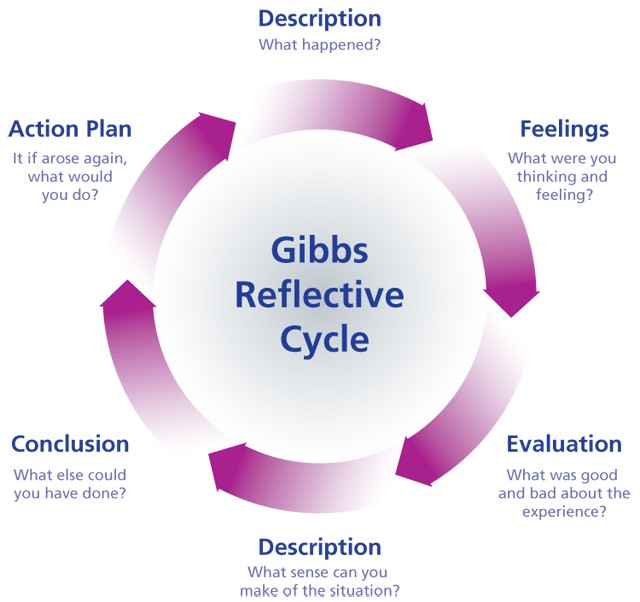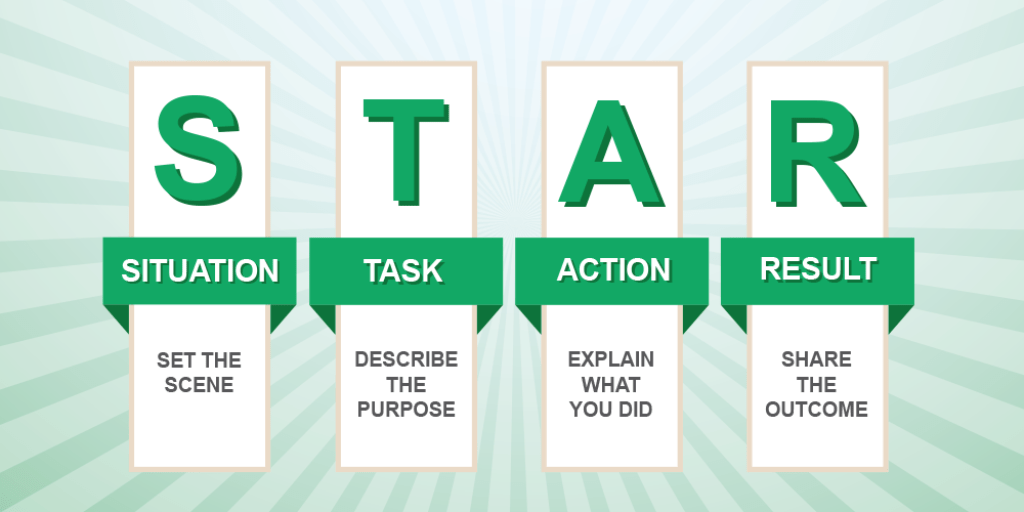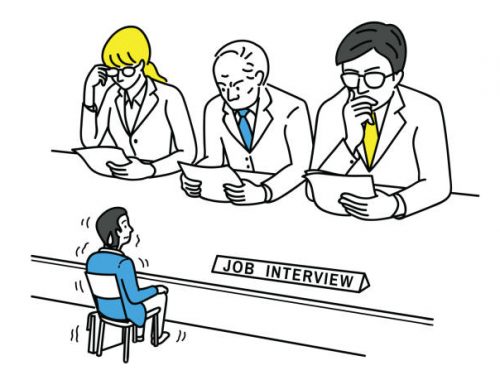Tell Me About Yourself… Who Me?!
How I survived a simulated interview
For years I have been told to always be myself. Be true to myself and don’t change for anybody. Does this rule still apply when going for a job interview?

My first every job interview was for a bakery in my local area, I was shy, quiet, and just gave the answers I thought the boss would want to hear, and it worked. I got the job and ended up working there for 2 years. However, as I grew up, I realised how much of an amazing person I was and questioned why I didn’t bring out my personality more in interviews. I thought it was worth a shot.
On the 3rd of February I completed a simulated interview for a music teaching job with my class mates. After completing this interview, I can now evaluate my performance using the Gibbs’ Reflective Cycle. The reason I chose to use this reflective method is because it is a good way of looking back at my performance and using this feedback to better my my skills for an actual interview. ‘By putting his/her personal experiences and observation into written work, a reader can revisit and reconsider their thoughts in the future.’[1]

I was in a group of 4 people, including myself, and we all took turns being the interviewers and the interviewee. Each interview lasted 15 minutes, with a 5 minute evaluation at the end of each. My classmates asked me a total of 6 questions, including ‘tell me about yourself’, ‘why do you think you would be a good teacher?’ and ‘how would you help a child who is struggling’.
I was anxious that I wasn’t going to be able to prepare for this interview as I didn’t have a lot of experience, however, I came across an article[2] that listed 5 main tips for a job interview which included:
- Dress appropriately
- Be prepared
- Don’t ask the wrong questions
- Ask the right questions
- Follow the steps for a success interview (speaking clear, turning phone off and then of course smiling too)
During the interview, I was feeling nervous that I was performing in front of my peers, but at the same time, I was confident in the things I was saying. Confidence is something I struggle with, so I wanted to work on that before this interview. When reading Goldsmith’s book on confidence, he mentioned that confident doesn’t come from just sitting around waiting for it to arrive, it is about ‘throwing everything you have at the wall and waiting for something to stick’[3]. I understood this as trying different ways of being confident. My first approach was to prepare. I am a very organised person and I know I can communicate things better when I am prepared. I researched different questions that might come up for this teaching position, using page 62 of Juchniewicz experiment[4], and came up with answers to each of the questions.
I enjoyed the experience and according to the feedback I received from my peers, my planning ahead really to my advantage as they said I gave ‘excellent answers filled with content and used STAR technique’. ‘Using this strategy is particularly helpful in response to competency-focused questions’[5]. The reason I used this technique is because I think it helps to get my point across better, especially when the panel asks questions like ‘describe a time when you had to help a child with something’. With this star technique, I was able to go into dept about my experience and show I understand the question.

As I evaluate my own performance, I would say I did very well. My peers noted that I gave excellent answers, used star technique well. That my answers included references to teamwork skills, leadership skills, personal experiences related to teaching and own school experience, and I produced compounds answers. Looking back on my own feedback I noted that I showed preparation, as I wasn’t shocked with any of the questions they asked me.
I believe we did this simulated interview to prepare us for interviews that we will have in the future. As I am applying for a PGCE this year, this task has really helped me as some of the teaching question I was asked will most likely be asked for the PGCE courses. I was glad I did this in front of my peers as well as it is far more intimidating to get questioned by people you know, over strangers. This will make me feel more relaxed in actual interviews.
In conclusion, I believe I done my best and according to my peers they agree, as they noted that my answers were detailed and they included key words, such as, teamwork skills, hardworking, dedication and experience of working with kids in a school. I think my personality showed in the interview and that I am a hard worker.
If I was to do this simulated interview, there is very few things I would change, however, I would try to look at my panel more, make more eye contact with them. As my friends were the panel it was a little daunting, and anytime I did look at them I got nervous and felt the urge to laugh. I would like to show off my experience a bit more if I was to do this again. I have a lot of experience with children but felt that I would’ve been talking too much if I would have shared this. I now believe the panel would want to hear my experience as it shows I am passionate about teaching.
By improving my interview skills I will become more appalling to the panel I am interviewing for, ‘Successful interviewing skills help maximize the probability that a job candidate will make a positive impression upon a prospective employer’[6]. Upon reflecting my interview performance, I am quite pleased with how it went and am happy that I complete this task, as it has gave me the confidence I needed when preparing for real life interviews.
References
[1] Adeani, I.S., Febriani, R.B. and Syafryadin, S., 2020. USING GIBBS’REFLECTIVE CYCLE IN MAKING REFLECTIONS OF LITERARY ANALYSIS. Indonesian EFL Journal, 6(2), pp.139-148.
[2] Bockanic, W.N., 2012. Making the job interview work for you: here are some tips to help you distinguish yourself from the competition. Strategic Finance, 94(6), pp.47-51.
[3] Goldsmith, B., 2010. 100 Ways to Boost Your Self-Confidence: Believe in yourself and others will too. Red Wheel/Weiser.
[4] Juchniewicz, J., 2016. An examination of music teacher job interview questions. Journal of Music Teacher Education, 26(1), pp.56-68.
[5] https://www.thebalancecareers.com/what-is-the-star-interview-response-technique-2061629
[6] Barker, L.K., Moore, J.W., Olmi, D.J. and Rowsey, K., 2019. A comparison of immediate and post-session feedback with behavioral skills training to improve interview skills in college students. Journal of Organizational Behavior Management, 39(3-4), pp.145-163.
You May Also Like

Simulated Interrogation
18 February 2022
9 February 2022

